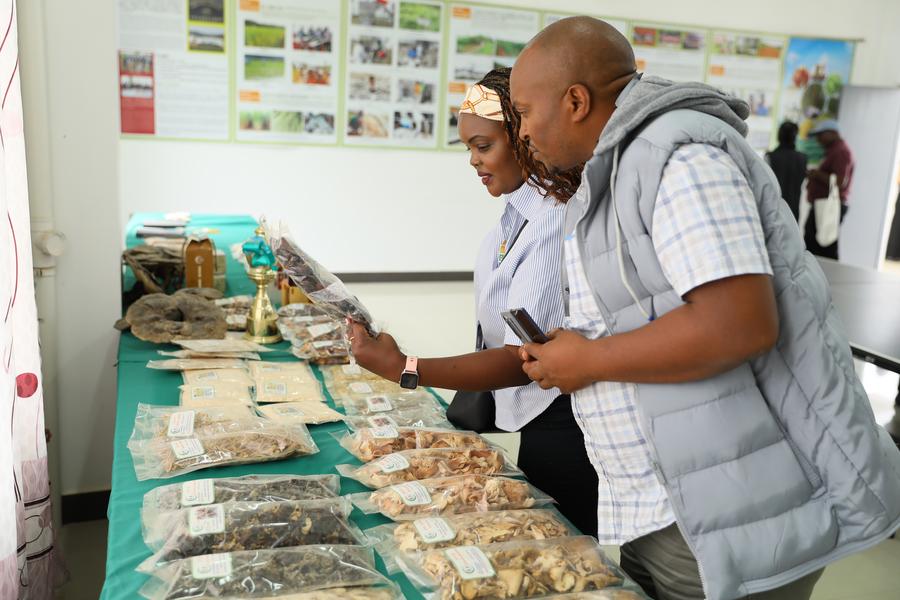Rwanda's Schools Thrive with Juncao: A Sustainable Feeding Solution from Grass to Plate

In the heart of southern Rwanda, a remarkable initiative is transforming the landscape of school feeding programs. A technical school, embracing the innovative Juncao technology, is cultivating mushrooms – a nutritious and affordable food source – to directly support its students' nutritional needs. This story isn't just about mushrooms; it's about sustainable development, empowering communities, and leveraging technology to combat food insecurity.
What is Juncao Technology?
Juncao technology, originating from China, is a groundbreaking method of cultivating edible mushrooms using grass as a substrate. Unlike traditional mushroom farming that relies on wood or other resources, Juncao utilizes readily available and renewable grass, significantly reducing costs and environmental impact. The process involves compressing grass into blocks, inoculating them with mushroom spores, and providing a controlled environment for growth. This simplicity and efficiency make it particularly well-suited for resource-limited settings.
Boosting the School Feeding Programme
The technical school in Rwanda has recognized the immense potential of Juncao technology. By cultivating mushrooms on-site, they've created a self-sustaining food source for their student feeding program. This not only ensures that students receive nutritious meals but also reduces the school's reliance on external food supplies, making the program more resilient to price fluctuations and supply chain disruptions.
Beyond Nutrition: Economic and Environmental Benefits
The impact of Juncao extends far beyond the school gates. The project provides valuable training opportunities for students, equipping them with practical skills in mushroom cultivation – a skill that can be applied to generate income and support their families. Furthermore, the use of grass as a substrate promotes sustainable agriculture, reducing pressure on forests and contributing to environmental conservation. The school is also exploring ways to sell the surplus mushrooms to the local community, further boosting the local economy.
A Model for Sustainable Development
The success of this Juncao-powered school feeding program in Rwanda serves as a powerful model for sustainable development in other parts of Africa. It demonstrates how simple, yet effective, technologies can be adapted to address local challenges and improve the lives of communities. The initiative highlights the importance of investing in local solutions, empowering communities, and embracing innovation to build a more food-secure and sustainable future.
Looking Ahead
The school plans to expand its Juncao cultivation efforts, increasing the volume of mushrooms produced and further strengthening the school feeding program. They are also exploring the possibility of training other schools and communities in Juncao technology, spreading the benefits of this innovative approach across Rwanda and beyond. The future looks bright, with the potential for Juncao to play a significant role in addressing food insecurity and promoting sustainable livelihoods in Africa.





